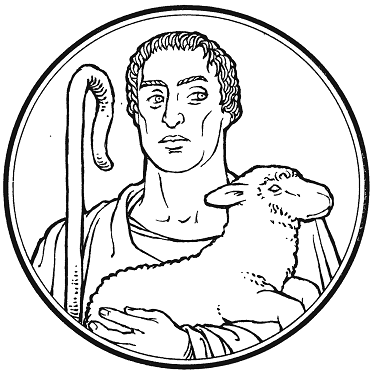Month: May 2022
-
Sunday after the Ascension
Exaudi – Answer Readings: Ezekiel 36:22–28 | 1 Peter 4:7–11 | John 15:26—16:4 Text: John 15:26—16:4 From ancient times, this Sunday has been known as “Waiting Sunday”—the time in between the Lord’s Ascension into heaven, where they were commanded to wait for the promise of the Father (Luke 24:49) But before His passion, the Lord…
-
Sixth Sunday of Easter
Rogate ~ Ask Readings: Numbers 21:4–9 | James 1:22–27 | John 16:23–33 Text: John 16:23-33 This Sunday differs from the other ones in Easter, with the Latin names that we’ve been seeing, Quasimodo Geniti and Jubilate and things like that, because in this one it doesn’t come from the first verse of the Introit. It…
-
New Revelation Bible Study
The daily Bible study podcast, The Word of the Lord Endures Forever, by Pastor Will Weedon is starting on the Book of Revelation. If Revelation has ever left you uneasy or scared, Pastor Weedon’s teaching style might bring you some much needed clarity.
-
Fifth Sunday of Easter
Cantate – Sing Readings: Isaiah 12:1–6 | James 1:16–21 | John 16:5–15 Text: James 1:16-21 The text is the epistle reading which we’ve heard where Saint James teaches the church, “Do not be deceived, my beloved brothers. Every good gift and every perfect gift is from above, coming down from the father of lights, with…
-
Fourth Sunday of Easter (Jubilate)
Readings: Isaiah 40:25–31 | 1 Peter 2:11–20 | John 16:16-22 Text: John 16:16-22 Alleluia! Christ is risen! There is a caricature of Christianity that says because Christ is risen, we should always be happy, always be looking up, and seeing the bright side of everything. It’s backed up by dreadful platitudes like, “God has a…
-

Third Sunday of Easter (Misericordias domini)
Readings: Ezekiel 34:11–16 | 1 Peter 2:21–25 | John 10:11-16 Text: John 10:11-16 The Lord Jesus says, “I am the Good Shepherd.” This Sunday in the Church year has come to be known as “Good Shepherd Sunday.” So, let’s to dig deeper into what this statement of Jesus means. Let us not just pass over…